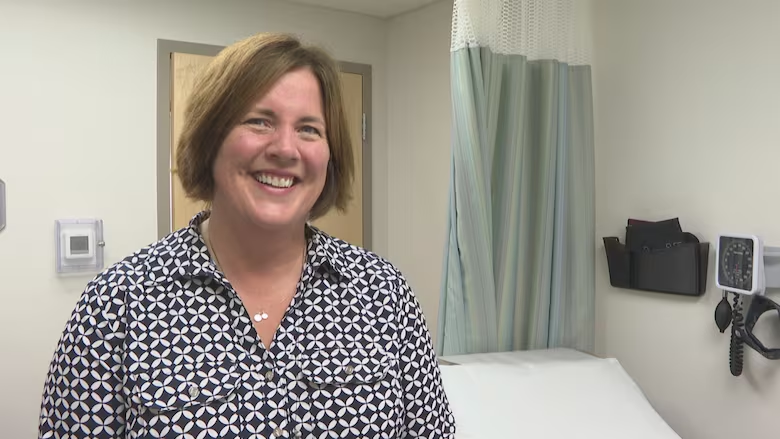P.E.I. hopes new at-home HPV tests will end cervical cancer in province by 2040
About 200 people have tried new tests so far, with a clinician cross-checking results

Prince Edward Island could be one of the first provinces to offer at-home self-testing for human papillomavirus or HPV, according to the head of the obstetrics and gynecology department at the Queen Elizabeth Hospital in Charlottetown.
Dr. Krista Cassell said about 200 patients have tried the kits so far in a medical office setting, with the results cross-checked by a clinician.
- Get the news you need without restrictions. Download our free CBC News App
"People like to do things in the privacy of their own home," she said. "We've shown that it's effective. It's as good as a test. It picks up the presence of the virus if it's present. It's cost-effective. It's easy to do."
If all goes well, she thinks these at-home screening kits could be available to anyone who needs one on Prince Edward Island by the end of this year.

HPV tests have been gradually replacing traditional Pap smear procedure tests around the world because they test for the virus itself, whereas the older test looked for cell changes due to the presence of the virus. In that sense, it's an earlier-warning system for an entirely preventable cancer.
The new test is recommended every five years, compared to every three years between Paps.
Cassell said between two and 10 cases of cervical cancer are diagnosed each year on P.E.I. She believes the Island could eradicate cervical cancer in line with Canada's national goal to do so by 2040 — and says these kits could play a crucial role.
You have the same accuracy as if a clinician got that specimen.— Dr. Gina Ogilvie
Other provinces are interested too. Dr. Gina Ogilvie led pilot project trials on the at-home tests across British Columbia six years ago.
"You have the same accuracy as if a clinician got that specimen," she said of B.C.'s experience after sending out 10,000 kits for self-collection in rural and urban areas.
Need to boost screening rate
Right now, Cassell said about 70 per cent of Prince Edward Islanders who need HPV screening are getting it, and the gold standard is more than 90 per cent.
She noted that there are a lot of barriers to testing the traditional way.
"They're worried about the pain, the intrusiveness of the test, the embarrassment, the anxiety around it — maybe just the logistics of getting themselves to a clinic, being off work, finding parking," she said.
"And we know that there are major groups that are really impacted by this as well.... We think about patients who live in more rural areas. We think about newcomer populations.... The LGBTQ+ population is another one that has been identified as perhaps not wanting to come for traditional screening."